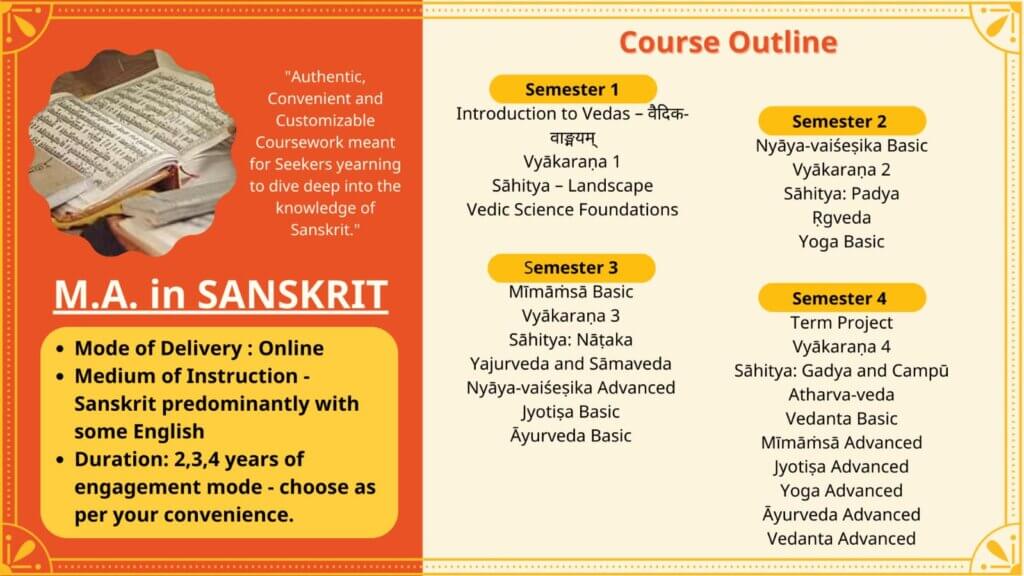The Master of Arts in Sanskrit Program features an immersive study of the Sanskrit language in the Sanskrit medium. It starts from basic Sanskrit proficiency and takes the students deep into the world of mastery of Sanskrit.
The program enables the student in transitioning from being a Sanskrit enthusiast to a genuine scholar who can access and engage rigorously with the varied knowledge-systems rooted in Hindu thought, including the literary, spiritual, and scientific literature embedded in the Sanskrit language.
Underscoring the importance of Sanskrit for the study of the source texts of the Vedas, Vedānta, Yoga, Āyurveda, and Śāstras in general, the Master of Arts in Sanskrit Program focuses on practice-oriented study, providing direct, unmediated access to these source-texts without having to rely on translations.
The program also prepares the students to explore ancient and classical texts such as the Vedas, Upaniṣads, Rāmāyaṇa, Mahābhārata, Purāṇas and the Prasthāna Traya with a commitment and concern for the wellbeing and future of humanity.
Master of Arts in Sanskrit
Course Content:
The Master of Arts in Sanskrit is offered by Hindu University of America in partnership with the Institute of Indic Knowledge Studies (IIKS), established and run by Maharashtra Academy of Engineering and Educational Research (MAEER), and recognized by Kavikulaguru Kalidas Sanskrit University, Maharashtra, India.
Students may complete the Master of Arts in Sanskrit by earning 48 quarter credit hours, i.e., by completing 16 x 3 – credit hour courses.
Out of these 16 courses, 11 are mandatory core courses and the remaining 5 are electives.
Eligible candidates must have completed a Bachelor’s Degree and must demonstrate adequate proficiency in Sanskrit by successfully completing the Sanskrit Proficiency Test (SPT).
